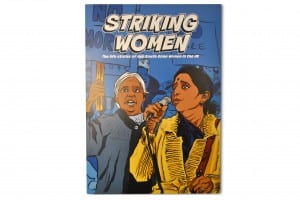 ‘Striking Women: South Asian workers’ struggles in the UK labour market from Grunwick to Gate Gourmet‘ is a Follow-on project funded by the Arts and Humanities Research Council and undertaken by Sundari Anitha (University of Lincoln), Ruth Pearson (University of Leeds) and Linda McDowell (University of Oxford).
‘Striking Women: South Asian workers’ struggles in the UK labour market from Grunwick to Gate Gourmet‘ is a Follow-on project funded by the Arts and Humanities Research Council and undertaken by Sundari Anitha (University of Lincoln), Ruth Pearson (University of Leeds) and Linda McDowell (University of Oxford).
There are three kinds of resources in the project – the first is an educational site about migration, women and work, rights and responsibilites at work and the story of the action by South Asian women during the Grunwick and Gate Gourmet industrial disputes. These resources can be found on www.striking-women.org.
The second resource is a two-part comic which depicts the life stories of two South Asian women involved with these disputes, downloadable from the site. The third is a mobile exhibition which can be borrowed by community groups and organisations. For further information, contact sanitha@lincoln.ac.uk




